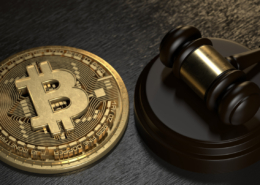Unverified and Unsure
The Significance of the BIS “Unverified List”
📅 November 7, 2024
📅 November 7, 2024
The U.S. Commerce Department’s Bureau of Industry and Security (BIS) in October 2024 added three Chinese companies to its Unverified List.
The Unverified List (UVL) is a list of parties that have not cooperated with BIS during post-shipment verification checks. Companies can be added to the UVL 60 days after the U.S. government requests verification checks. If U.S. officials are unable to complete an end-use check after an additional 60 days, BIS will initiate the interagency regulatory process to move those parties to the Entity List, which contains a list of names of foreign businesses, research institutions, government and private organizations, individuals, and other types of legal persons that are subject to specific license requirements for the export, reexport and/or transfer (in-country) of specified items.
BIS sometimes cannot complete end-user checks for various reasons; some examples include:
If BIS is unable to confirm the validity or legitimacy of the entity receiving restricted U.S. goods, software, or technology, concerns about the company’s suitability to receive exports, re-exports, or in-country transfers may land it on the UVL.
How is the Unverified List different from other BIS lists?
BIS administers several lists that impose additional obligations on exporters, financial institutions, and other stakeholders to perform due diligence on transactions that involve products, technology, software, materials, or equipment governed by the EAR.
The UVL is different. Parties can continue to do business with individuals on the UVL, according to BIS, but if the transaction involves items subject to the EAR, exporters and other firms will need to take additional compliance steps designed to resolve the U.S. government’s concerns about the entity’s “unverified” status.
Inclusion on the UVL is not intended to be punitive, but rather it indicates to exporters or other firms that the legitimacy and reliability about the end-use and end-user of items subject to the EAR cannot be completed by the U.S. government through an end-use check, such as a pre-license check (PLC) or a post-shipment verification (PSV).
However, if a foreign government prevents U.S. officials from conducting on-site checks at companies on the UVL, Washington will add them to the more restrictive “Entity List” after 60 days. The United States will also remove companies from the UVL once successful checks happen.
Exporters must file an Automated Export System record for items subject to the EAR that are shipped to entities on the UVL. Exporters must also obtain a statement from these parties prior to exporting, reexporting, or transferring to them any item subject to the EAR which is not subject to a license requirement.
This statement is critical. It must be submitted in writing, signed and dated by an individual of sufficient authority to legally bind the UVL party, and must include identifying information, location, and listing of the end-use, end-user, and ultimate destination of items subject to the EAR, as well as written agreement to cooperate with end-use checks, among other things.
Firms and financial institutions involved in trade financing or exports of sensitive items must perform due diligence to ensure they’re not violating the EAR. A company’s inclusion on the UVL should be treated as a “red flag” that requires additional due diligence. Screening all parties for all transactions against the Denied Party List and investigating potentially suspicious transactions is wise.
BIS in October 2024 issued guidance for financial institutions to help them remain in compliance with the EAR’s General Prohibition 10, which prohibits knowingly financing any transaction that violates the EAR, including reexporting or transferring restricted items. As a best practice, BIS recommended screening customers against BIS lists of entities subject to end-user restrictions, including the Unverified List. The presence of a party on the Unverified List should be a “red flag” for financial institutions to perform additional due diligence before proceeding with the transaction.
The Unverified List has helped U.S. officials successfully complete end-use checks in China, allowing BIS to remove Chinese entities from the UVL after verifying their reliability. At the same time, BIS was able to move several Russian companies from the UVL to the Entity List, further restricting suspicious Russian end-users from importing sensitive U.S.-origin goods and technology.
Unlike entities on OFAC’s SDN list, U.S. persons can still transact with entities on the BIS Unverified List. However, no license exceptions may be used for exports, reexports or in-country transfers to parties on the UVL. To prevent diversion of restricted products to unauthorized end-users, exporters, financial institutions, brokers, and other stakeholders must conduct additional due diligence before transacting with a party on the UVL, and closely monitor changes to the UVL, especially if they involve the transfer of a company to the Entity List.
Read about BIS’s guidance for financial institutions on complying with strategic trade controls, including best practices, red flags, screening, and reporting. The latest guidance provides greater detail on due diligence and risk management to help financial institutions detect and deter emerging and evolving export controls evasion.










 Calibrating the Crosshairs
Calibrating the CrosshairsThis site uses cookies. By continuing to browse the site, you are agreeing to our use of cookies.
Accept settingsHide notification onlySettingsWe may request cookies to be set on your device. We use cookies to let us know when you visit our websites, how you interact with us, to enrich your user experience, and to customize your relationship with our website.
Click on the different category headings to find out more. You can also change some of your preferences. Note that blocking some types of cookies may impact your experience on our websites and the services we are able to offer.
These cookies are strictly necessary to provide you with services available through our website and to use some of its features.
Because these cookies are strictly necessary to deliver the website, refusing them will have impact how our site functions. You always can block or delete cookies by changing your browser settings and force blocking all cookies on this website. But this will always prompt you to accept/refuse cookies when revisiting our site.
We fully respect if you want to refuse cookies but to avoid asking you again and again kindly allow us to store a cookie for that. You are free to opt out any time or opt in for other cookies to get a better experience. If you refuse cookies we will remove all set cookies in our domain.
We provide you with a list of stored cookies on your computer in our domain so you can check what we stored. Due to security reasons we are not able to show or modify cookies from other domains. You can check these in your browser security settings.
These cookies collect information that is used either in aggregate form to help us understand how our website is being used or how effective our marketing campaigns are, or to help us customize our website and application for you in order to enhance your experience.
If you do not want that we track your visit to our site you can disable tracking in your browser here:
We also use different external services like Google Webfonts, Google Maps, and external Video providers. Since these providers may collect personal data like your IP address we allow you to block them here. Please be aware that this might heavily reduce the functionality and appearance of our site. Changes will take effect once you reload the page.
Google Webfont Settings:
Google Map Settings:
Google reCaptcha Settings:
Vimeo and Youtube video embeds:
You can read about our cookies and privacy settings in detail on our Privacy Policy Page.
Privacy Policy